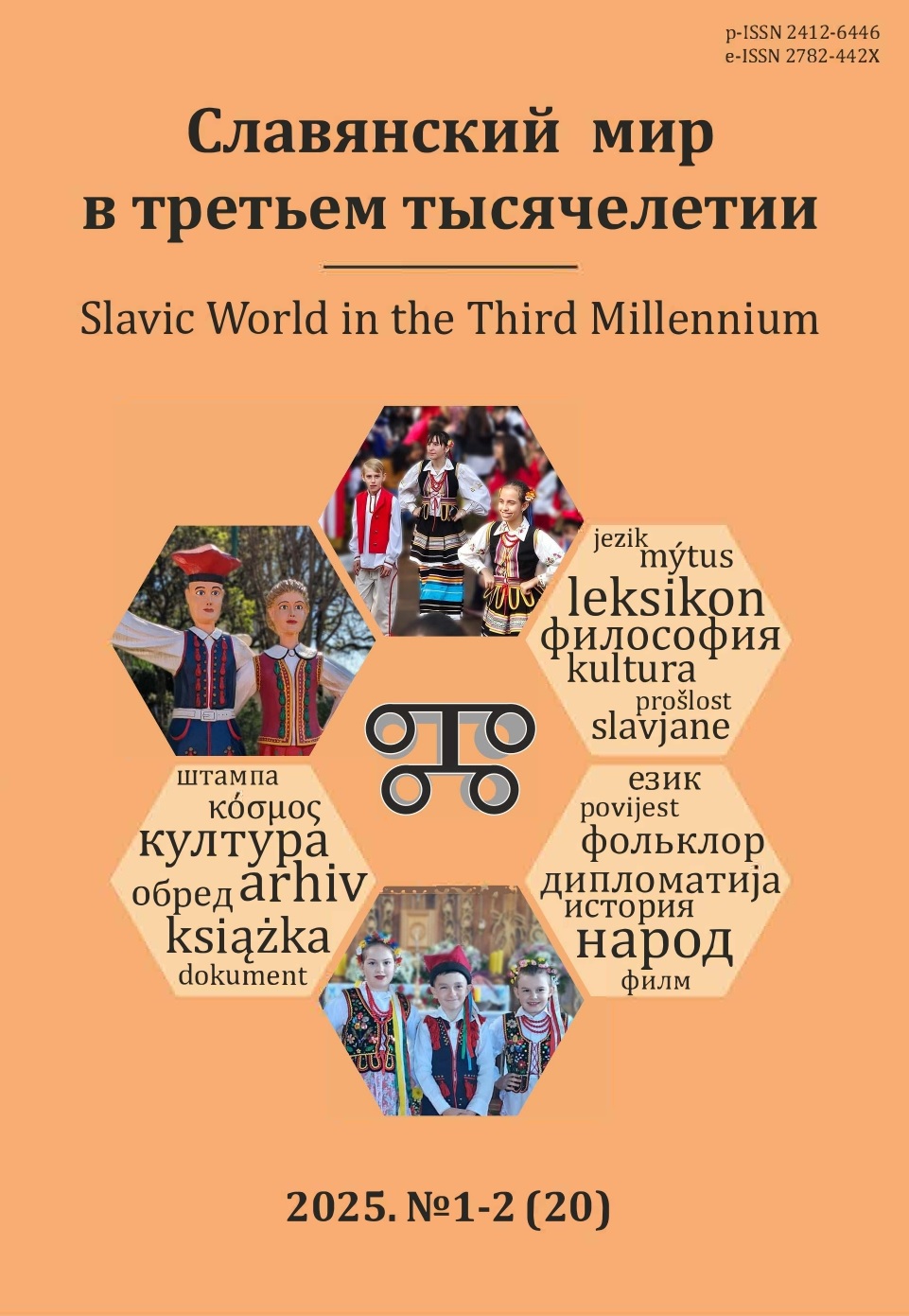Russo-Turkish War of 1877–1878 in “A Writer’s Diary”: About Some Aspects of F. M. Dostoevsky’s Philosophy of War
DOI:
https://doi.org/10.31168/2412-6446.2025.20.1-2.03Keywords:
Orthodoxy, history of Russia, Russian philosophy, Russian idea, nationalism, journalism, dialogue of cultures, Dostoevsky, Kant, HegelAbstract
The article examines Fyodor Dostoevsky’s “A Writer’s Diary” in the context of the Russian national idea, and considers the issue of the writer’s “humanism” and the philosophical origins of his understanding of war. In “A Writer’s Diary,” which occupied a special place in the Russian periodical press of the 1870s and found a wide public response, along with other socio-political topics, special attention was given to covering the events of the era of the Balkan crisis of 1875–1878 and the role of Russia in resolving the Eastern Question. The analysis of the Dostoevsky’s correspondence revealed that most readers of the “Diary” were not indifferent to the fate of the Balkan Slavs and thanked the writer for his articles on the “Slavic cause.” The article argues for the need to study Dostoevsky’s journal as a synthetic work, a fragmentary approach to the study of which entails a distortion of the author’s position. It is shown that the consideration of Dostoevsky’s philosophy of war cannot be limited to the socio-political sphere, since the philosophical and religious components occupy the leading positions in the writer’s work. Dostoevsky saw the messianic role of Russia in the war for the liberation of the Balkan Slavs in the fact that it is capable of renewing the world on the basis of Orthodoxy, where the authentic image of Christ is preserved, in connection with which it seems incorrect to classify the writer’s ideas as humanistic. The work refutes the idea that one of the sources of the formation of Dostoevsky’s ideas about the phenomenon of war were the works of Immanuel Kant, and parallels are drawn between the interpretations of war by Hegel and Dostoevsky, who spoke of the messianic destiny of the German and Russian people, respectively, and also saw in war a guarantee of the moral health of the nation; This allows us to draw a conclusion about the philosophical dialogue between German and Russian cultures, which influenced Russian intellectual discourse in the 1870s.
Funding
The research was carried out with the support of the Russian Science Foundation № 23‐78‐10045 “National movements in the optics of imperial legitimacy: revolutions, uprisings, riots, riots in the Slavic lands in the rhetoric of the Russian authorities of the long 19th century.”
Received 3 April 2025
Revised 11 May 2025
Accepted 28 May 2025
For citation: Lunkova, N. A., Lyapustin A. G., 2025. Russo-Turkish War of 1877–1878 in “A Writer’s Diary”: About Some Aspects of F. M. Dostoevsky’s Philosophy of War. Slavic World in the Third Millennium, 20 (1–2), pp. 53–70. https://doi.org/10.31168/2412-6446.2025.20.1-2.03



